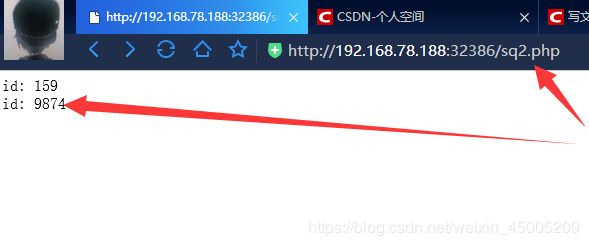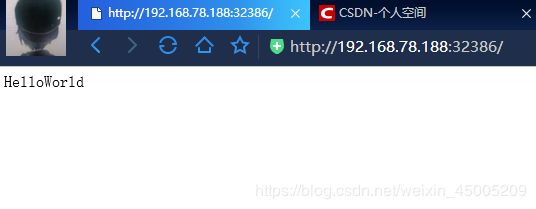k8s下lnmp Web服务器的搭建(学习记录,一步一步找错,肯定会有所收货的)
搭建服务的环境如下:
虚拟机版本:Centos7
docker版本:1.13.1, build 64e9980/1.13.1,master以及node节点都要安装docker服务,保证版本一样。
kubernetes版本:最新的
Matser以及node节点要安装nfs服务,来保证挂载成功,或者用其他的方式进行挂载或者映射,这里采用的是configmap以及nfs服务。
搭建web服务器的总的流程,首先建立nginx服务,并修改nginx的conf文件,让其能解析php文件,实现web服务,最后建立mysql服务,最后测试完毕。
1:建立nginx-config.yaml文件
apiVersion: v1
kind: ConfigMap
metadata:
name: nginx-config
data:
default.conf: |
server {
listen 80;
server_name localhost;
root /usr/share/nginx/html;
access_log /var/log/nginx/host_access.log;
error_log /var/log/nginx/host_error.log debug;
location / {
root /usr/share/nginx/html;
index index.html index.htm index.php;
}
error_page 500 502 503 504 /50x.html;
location = /50x.html {
root /usr/share/nginx/html;
}
location ~ \.php$ {
root /usr/share/nginx/html;
fastcgi_pass 10.254.144.154:9000; #要和nginx-phpdeployment.yaml中的ip一样
fastcgi_index index.php;
fastcgi_param SCRIPT_FILENAME $document_root$fastcgi_script_name;
include fastcgi_params;
}
}
2:建立nginx-deployment.yaml文件
apiVersion: v1
kind: Service #指定为service服务,让nginx可以被外部访问
metadata:
name: nginx-service
spec:
type: NodePort #设置为外部port
selector:
app: nginx
ports:
- protocol: TCP
port: 80 #指定端口为80
targetPort: 80
---
apiVersion: extensions/v1beta1
kind: Deployment #指定为deployment服务
metadata:
name: nginx-deployment
spec:
selector:
matchLabels:
app: nginx #选择nginx的app
template:
metadata:
labels:
app: nginx
spec:
containers:
- name: nginx
image: nginx:alpine #指定nginx以及和最小的linux服务
volumeMounts:
- name: nginx-config
mountPath: /etc/nginx/conf.d #映射到nginx的目录
- name: web-root #名字要和volumes下面的名字一样
mountPath: /usr/share/nginx/html#映射到usr/share/nginx/html下
volumes:
- name: nginx-config
configMap:
name: nginx-config #第一个文件中的name名称
- name: web-root #要和上面volumeMounts的名字一样
nfs:
server: 192.168.78.199 #挂载nfs服务的ip地址,我是挂载在master上的
path: /root/html #宿主机映射的目录
3:建立php-deployment.yaml文件
apiVersion: v1
kind: Service
metadata:
name: php-service
spec:
clusterIP: 10.254.144.154 #要和nginx-comfigmap.yaml中的ip一样
selector:
app: php
ports:
- name: php
port: 9000 #映射为9000端口
targetPort: 9000
---
apiVersion: extensions/v1beta1
kind: Deployment
metadata:
name: php-deployment
spec:
replicas: 1 #指定启动的服务为1,可以是多个,修改值就可以;
selector:
matchLabels:
app: php
template:
metadata:
labels:
app: php
spec:
containers:
- name: php
image: devilbox/php-fpm:5.2-work-0.89 #指定php版本,这里指定的是doker官方的比较稳定的一个;
volumeMounts:
- name: web-root #要和下面的volumes的名称一样;
mountPath: /usr/share/nginx/html #不映射这个,不能解析.php文件,nginx中的是.html文件
volumes:
- name: web-root
nfs:
server: 192.168.78.199 #挂载nfs服务的ip地址,我是挂载在master上的
path: /root/html #宿主机映射的目录
4:建立mysql.deployment.yaml文件
apiVersion: extensions/v1beta1
kind: Deployment
metadata:
name: mysql-deployment
spec:
selector:
matchLabels:
app: mysql
template:
metadata:
labels:
app: mysql
spec:
containers:
- name: mysql
image: mysql:5.7 #指定mysql版本,这个版本好用
ports:
- containerPort: 3306
env:
- name: MYSQL_ROOT_PASSWORD #设置mysql数据库的密码
value: '123456'
---
apiVersion: v1
kind: Service #指定为service服务
metadata:
name: mysql
spec:
selector:
app: mysql
ports:
- name: mysql
port: 3306
targetPort: 3306
5:配置数据库相关操作
1:首先查看mysql容器的ID是多少
docker ps | grep mysql
a94fe4e35390 mysql:5.7
3365081b56f0 registry.access.redhat.com/rhel7/pod-infrastruct
2:进入该容器,可以用两种命令进入
1:在相应的node节点上:docker exec -it a94fe4e35390 bash
2:在master kubectl get pod 查看mysql的名称,这里查到的是mysql-deployment-4144028371-tdtc2
2:在Master节点上,kubectl mysql-deployment-4144028371-tdtc2 exec -it /bin/sh
3:进入mysql数据库服务
mysql -uroot -p123456
4:建立用户以及授权
use mysql;
CREATE USER 'llh2025'@'%' IDENTIFIED BY '123456'; #创建用户llh2025以及设置密码123456
grant all privileges on *.* to 'llh2025'@'%'; #给与所有权限给llh2025
grant SUPER on *.* to 'llh2025'@'%'; #给与所有权限给llh2025
flush privileges; #刷新所有mysql数据库的所有配置
5:建立数据库以及表
create datavase User #创建名字为User的库名称
use User #进入到User库目录下
create table llh2025(name int(5)); #建立名字为llh2025的表,并只有一个name结构
insert into llh2025 values(159); #添加一条数据
insert into llh2025 values(9874); #添加一条数据
至此,数据库配置完毕,其实这些都可以像设置密码一样简单,直接在mysql-deployment中配置,不过还没学到,只好自己配置了;
End
6:配置nfs
1:vim /etc/exports
/root/html *(rw,no_root_squash,sync) #挂载/root/html
/root/conf *(rw,no_root_squash,sync) #挂载/root/conf,尽量用绝对路径;
2:挂载nfs服务
mount -t nfs 192.168.78.199:/root/html /lnmp/nfsdata #ip为master主机ip,后面的目录也是绝对路径,要先建立;
3:重新启动nfs服务
systemctl restart nfs
7:防火墙以及selinux
1:首先要关闭防火墙
systemctl stop firewalld.service
2:关闭selinux服务
vim /etc/selinux/config
将配置文件的第一行未被注释改为:SELINUX=disabled
3:可能需要重新启动虚拟机,也可能不用重启;
4:重要:要设置防火墙规则,k8s要能被外面访问,必须修改其中的一条规则,直接在终端运行一面一条命令即可:
iptables -P FORWARD ACCEPT
至此相关配置完毕
End
结果验证
1:首先查看/root/html下的有哪些的文件,测试只用到了index.html,test.php以及sq2.php文件,其他的没用到
[root@k8s-master ~]# tree /root/html/
/root/html/
├── index.html
├── ios.html
├── mm.php
├── mysql.php
├── php.php
├── redis.php
├── sq2.php
├── sq.php
└── test.php
2:修改test.php,sq2.php,test.php,index.html文件内容
1:修改test.php文件
phpinfo();
?>
2:修改sq2.php文件,这里有个点,我也不知道其他人怎么做的,这里的10.254.177.154为mysql Servie的ip地址,
不过一般的mysql服务都是自己另起一台主机的,这里省事,就直接在master节点中起了一个mysql容器服务;
[root@k8s-master html]# kubectl get svc
NAME CLUSTER-IP EXTERNAL-IP PORT(S) AGE
kubernetes 10.254.0.1 <none> 443/TCP 11d
mysql 10.254.177.154 <none> 3306/TCP 2h #就是这个地址
nginx-service 10.254.37.102 <nodes> 80:32386/TCP 13h
php-service 10.254.235.214 <none> 9000/TCP 12h
$servername = "10.254.177.154";
$username = "llh2025";
$password = "123456";
$dbname = "User";
$conn = new mysqli($servername, $username, $password, $dbname);
if ($conn->connect_error) {
die("errors: " . $conn->connect_error);
}
$sql = "select * from llh2025";
$result = $conn->query($sql);
if ($result->num_rows > 0) {
while($row = $result->fetch_assoc()) {
echo "id: " . $row["name"]. "
";
}
} else {
echo "0 结果";
}
$conn->close();
?>
3:修改index.html默认文件的内容
echo "HelloWorld"
?>
3:查看nginx服务所暴露的外部端口
[root@k8s-master ~]# kubectl get svc
NAME CLUSTER-IP EXTERNAL-IP PORT(S) AGE
kubernetes 10.254.0.1 <none> 443/TCP 11d
mysql 10.254.177.154 <none> 3306/TCP 1h
nginx-service 10.254.37.102 <nodes> 80:32386/TCP 13h
php-service 10.254.235.214 <none> 9000/TCP 12h
这里可以看到nginx服务的端口Web为32386,直接在web服务器访问:192.168.78.188:32386皆可
返回了index.html中的内容,访问没有问题
5:访问192.168.78.188:32386/sq2.php

返回了数据库中的内容,访问没有问题
6:访问192.168.78.188:32386/test.php

返回了php的默认界面,访问没有问题
测试结束
(qq:九七二四三九三二九(972439329)微信:(liang7890234),有哪里不对欢迎指正,大家一起学习交流)
